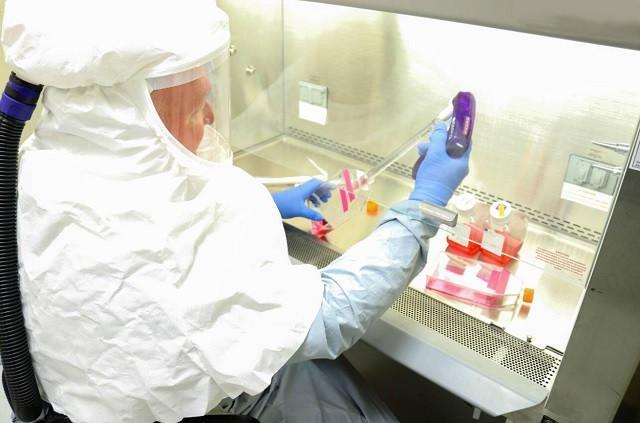Turkish professor says more than one vaccine will be found for COVID-19
ISTANBUL

Alamy Photo
As hundreds of scientists around the world have been scrambling to develop a vaccine to end the novel coronavirus pandemic, a prominent Turkish professor has said she expects more than one vaccine to be found for COVID-19.
Speaking to daily Hürriyet, Professor İvet Bahar said she expects more than one vaccine to be found in the “short-term,” which will be used for the different phases of the illness, with different dosages.
Bahar also said that within this mix of medications, blood thinners will also be included.
“Scientists all over the world are very efficiently sharing data and information. In a short period of time, I expect the discovery of more than one medication or vaccine,” she said.
She also further elaborated that, in her words, “short-term” corresponds to one or two years.
“In normal conditions, a process which usually takes at least 10 years might have been reduced to a couple of years now,” Bahar said.
Bahar also said that the first round of works include those in “numeral system pharmacology,” which consists of scanning known medication databases with the “highest computer technology.”
This round of works allows scientists to look up for existing medications which can be possibly used against COVID-19.
The professor also underlined that Remdesivir, which was developed to fight the Ebola outbreak, has been “shelved” because it did not yield “enough” good results.
The scientists are now looking to prevent the activity of the dependent RNA polymerase, which is a protein that allows the SARS-COV-2 virus to reproduce. The U.S. Food and Drug Administration (FDA) has obtained permission for this to be used in COVID-19 treatment, she said.
As for the second round, scientists carry out works in the “molecular” level, she said.
“The virus’ spike protein needs to change its shape to connect to the human cell. For it to shapeshift, a protease, which exists in the human cell membrane, allows it by breaking a chemical bond,” she said.
A protease is an enzyme which catalyzes the breakdown of proteins into smaller polypeptides of single amino acids.
“In places where the protease does not exist, the rate of infection significantly decreases,” Bahar said.
“We are working on a medication which will comprehend the mechanism of that protease and which will stop it,” she added.
“In my opinion, more than one medication will be found and will be used together in the disease’s different phases, with different dosages.”
Bahar, from the University of Pittsburgh, who worked on pharmaceutical designs, succeeded in becoming the first Turkish woman to be chosen to be a member of the U.S. National Academy of Sciences.
















